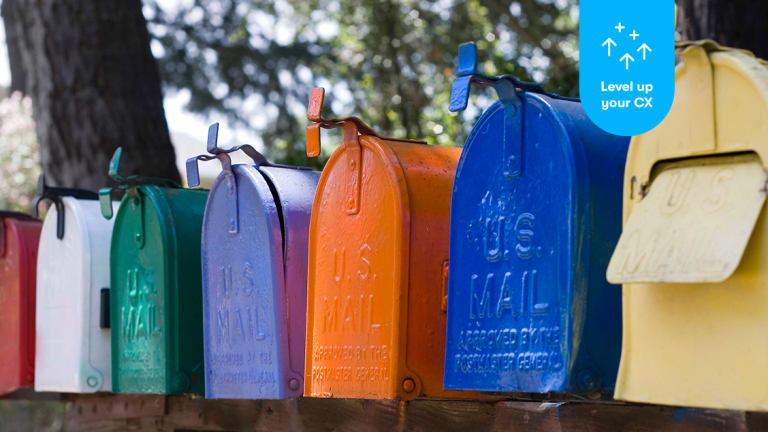Email marketing is a digital marketing strategy that involves sending commercial messages or promotional content to a group of people via email. It is a direct form of communication between an organization and its target audience, typically consisting of subscribers or customers who have opted to receive such emails.
Still going strong after all these years
Since its inception in the late 70’s, email marketing has supported millions of organizations in building relationships, promoting products or services, driving traffic to their websites, and generating conversions or sales.
It has evolved to become a widely used marketing strategy by businesses of all sizes and across various industries and has continually adapted to advancements in technology and changes in consumer behavior, making it a long-standing and effective channel for communication and marketing.
Today, email marketing is still one of your most important and effective marketing strategies, despite the rise of other digital marketing channels and social media platforms. It is highly reliable and offers a direct and personal way to reach target audiences, allowing you to connect with customers, promote products or services, build brand loyalty, and drive conversions.
With proper segmentation, personalization, and automation, email marketing can deliver targeted messages, nurture customer relationships, and achieve high return on investment (ROI) for businesses.
Let’s explore those:
- Segmentation: By dividing your email subscriber list into smaller, targeted groups based on specific criteria such as demographics, interests, or purchase history, you allow for more precise and relevant communication and the delivery of more personalized content and offers that resonate with specific audience segments, leading to higher engagement and better campaign results.
- Personalization: Tailoring email content to individual recipients based on their preferences, behaviors, and demographics create a more relevant and engaging experience, increase open and click-through rates, foster customer loyalty, and ultimately drive higher conversions and revenue for businesses.
- Marketing automation: Automating and streamlining your email marketing campaigns with automated email sequences, triggered emails, and personalized email communications designed to resonate with recipients at the precise stage of the customer journey they’re at, is a highly effectively way to nurture leads towards conversion
What are some examples of marketing automation?
Here are some examples of how email marketing automation can be used to deliver targeted and relevant messages to customers at different stages of the customer journey, ultimately driving engagement, conversions, and customer loyalty.
- Lead nurturing: Marketing automation can be used to nurture leads by delivering personalized and targeted content based on their interests and behavior. It enables you to build relationships with potential customers, educate them about your products or services, and guide them through the decision-making process.
- Email marketing: Marketing automation platforms enable you to automate email campaigns, including welcome emails, newsletters, event invitations, and follow-up emails. It allows for personalized messaging, segmentation of email lists, and tracking of email performance metrics to optimize engagement and conversions.
- Customer onboarding: Marketing automation can streamline the onboarding process for new customers by delivering a series of automated emails or messages that provide guidance, helpful resources, and support. This helps in creating a positive customer experience and increasing customer satisfaction.
- Event promotion: Whether it's a webinar, conference, or workshop, marketing automation can be used to promote your events by sending targeted invitations, reminders, and follow-ups. It helps in managing registrations, tracking attendee engagement, and measuring event ROI.
- Customer surveys and feedback: Marketing automation platforms can facilitate the creation and distribution of customer surveys and feedback forms. By automating the collection and analysis of responses, businesses can gain valuable insights, identify areas for improvement, and enhance the overall customer experience.
Marketing automation allows businesses to send targeted and timely emails to their subscribers, nurture leads through automated email sequences, segment their audience for more personalized messaging, and track and analyze the performance of email campaigns. It helps save time, increase efficiency, and deliver more relevant and engaging email experiences to subscribers.
Who’s doing email marketing with pizzazz?
Two companies that demonstrate the power of email marketing when it comes to building customer relationships, driving conversions, and providing value to their audience.
Airbnb utilizes personalized and timely email campaigns to nurture customer relationships and drive bookings. They send personalized recommendations based on users' search history, provide updates on their saved properties, and send reminders about upcoming trips. By leveraging data and segmentation, Airbnb delivers relevant and tailored content that keeps their audience engaged and encourages them to act.
Grammarly, a popular writing assistant tool, excels at email marketing by delivering valuable content to their subscribers. They provide grammar tips, writing advice, and insights on improving writing skills. Grammarly also sends personalized reports to users, highlighting their writing achievements, and encouraging them to continue using the platform. Their emails are informative, educational, and reinforce the value of their product.
Does email marketing still work?
Here are some recent statistics that highlight the ever-powerful effectiveness of email marketing and marketing automation:
- According to a study by Data & Marketing Association, email marketing has an average return on investment (ROI) of $42 for every $1 spent (equating to 4400%), making it one of the most cost-effective marketing channels.
- Campaign Monitor reports that personalized email marketing campaigns have an average open rate of 18.8%, compared to 13.1% for non-personalized campaigns. Additionally, emails with personalized subject lines are 26% more likely to be opened.
- A study by Epsilon found that automated email campaigns generate 320% more revenue than non-automated campaigns. Furthermore, automated emails have an 119% higher click-through rate than regular broadcast emails.
- According to HubSpot, the most effective strategies for email campaigns are subscriber segmentation (78%), message personalization (72%), and email automation campaigns (71%).
These statistics demonstrate the power of email marketing and marketing automation in terms of ROI, engagement, revenue generation, and customer acquisition. By leveraging these strategies effectively, businesses and organizations can significantly enhance their marketing efforts and drive meaningful results.

